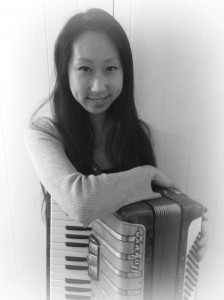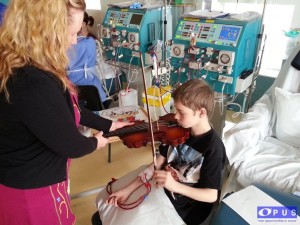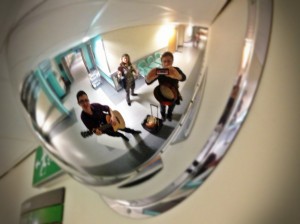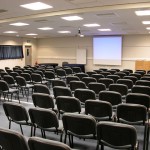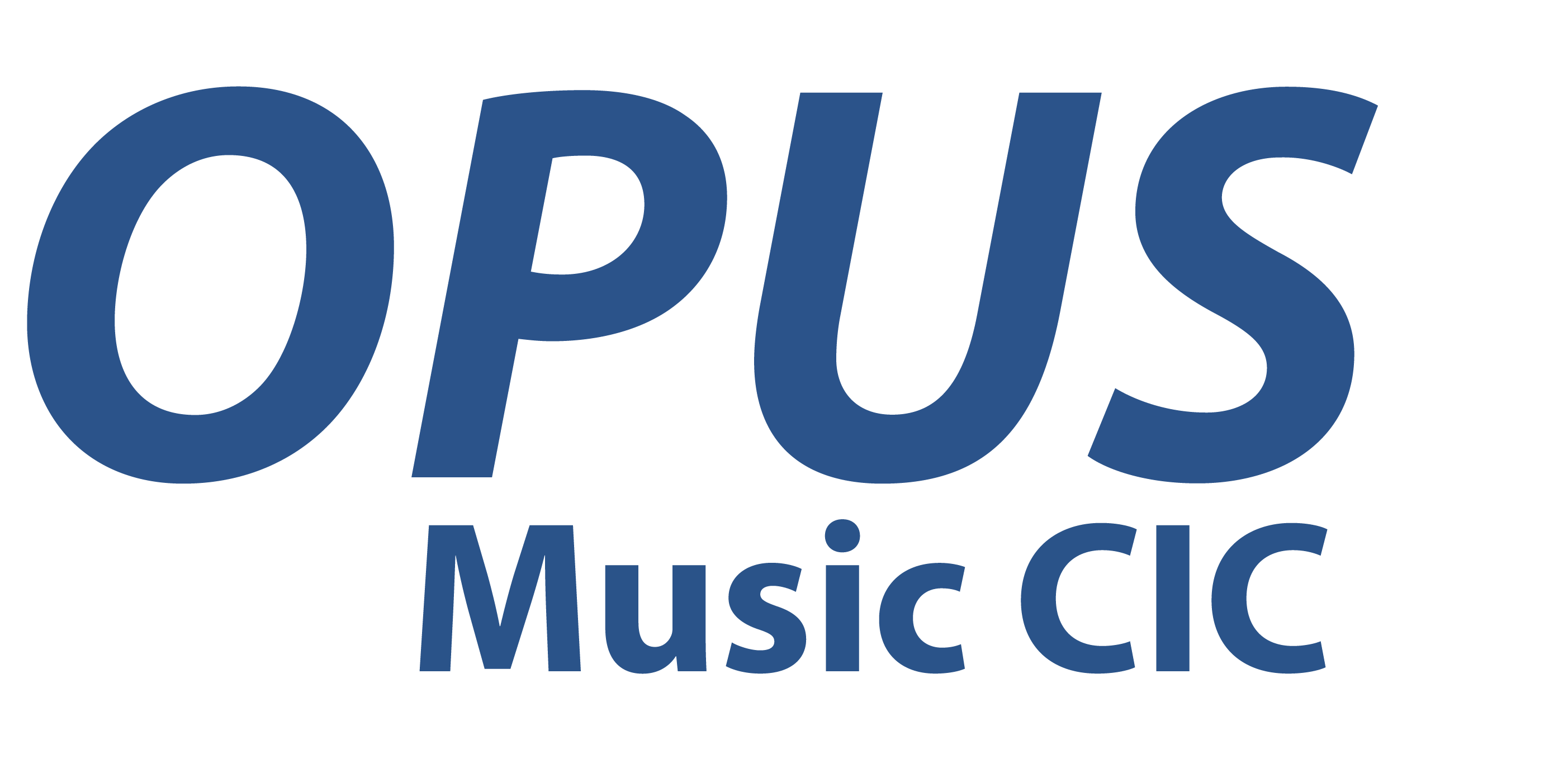Nottingham Children’s Hospital Mentoring Reflections – Joe Danks
There are lots of skills required for this work, and as I come to the end of ten weeks training I realise there has been a huge amount of progression in all areas. I also understand now probably more than ever that there is a long way to go and even were I to train for ten years there would still be situations and interactions that would surprise me, and situations I could learn from. This has been demonstrated throughout the process, with new challenges presented every week. I think this is best described as a non-linear learning experience, as some weeks you feel like you really feel like you have made progression and some weeks you feel like you are back to square one. The diversity of challenges is equally reflected in the diversity of reward, and there is a new joy to be found every time you meet someone new.
There are lots of musical skills that I have found to be invaluable in this process, I must say most of these have come from my experience in the folk tradition. I would like to focus on watching as a purely musical discipline. Whilst watching the young people, parents and staff is of paramount importance, I am focusing on the way we as musicians watch each other. In my opinion the way in which we watch each other is closest in style to the way that I would watch fellow musicians at a folk session. The music works in a very democratic way, far from the dictatorship of a classical conductor. This is intrinsic to the way we work, but it does bring its own obstacles. It certain situations it is necessary to communicate a vast amount of information in a very short amount of time. This usually takes the form of simple eye contact; I don’t think I’ve ever appreciated my eyebrows quite so much! There is also a lot of information communicated with body language. Little ducks down to designate volume or hand signals to gesture to drop to just voices for example. I’ve done an awful lot of discreet pointing. For this to work, is it crucial to have a good musical rapport with your colleagues. I think this comes from experience playing together, and experience playing in a hospital context. Knowing how each musician plays is really important as there is no set structure and the form is very loose. You need to be able to follow each other. This is something that you develop from getting stuck in and doing, and a skill I feel like I possessed before, but one that has developed hugely through my mentoring.
Spatial awareness is crucial to the success of this work, and takes 2 different forms. You need not only to be aware of your physical position in the space, but also your sonic position. There is a real difference between playing to a space and playing to an individual. Sometimes it seems appropriate to play for a whole bay from the adjacent corridor as opposed to entering the space to interact. Sometimes this is a doorway into interactions but often it is deemed more beneficial to simply play for a few minutes and move on from the space. Receiving music passively is often all that a patient can engage with, and this is a good way to provide stimulation without being overbearing. Conversely, the work that we do often requires us to get extremely close to patients. This requires a great deal of tactfulness and awareness. Moving towards a bed is very easy to get wrong. Awareness of your own size, and your instrument’s shape and appearance is very important; otherwise you run the risk of coming across as something to be feared. Learning to show your openness with your body is important. As hospital musicians we often joke about working in the hospital being a great workout, but it is very true. A huge majority of interactions happen whilst I’m on my knees or squatted next to a bed. Putting yourself below a patient can transfer control to them. It is also important as it helps you present your instrument. Feeling the sound is very different to just listening to it. I remember very clearly an occasion where my colleague Angela had a young man in a wheelchair simply holding the two halves of the accordion whilst she gently worked the bellows. He could feel and hear the air rushing through the accordion and it was having a huge impact on him, it was really wonderful to watch.
Whilst your position in a space is a tool, it is also something to be careful of. Angela and I have joked about being like the ‘Men In Black’ in a space, but it is a really useful comparison! We often enter a space back to back and face one half of the ward each. This allows us to see everything that is happening whilst we play, allowing us to mitigate any negative effects of the sound we are creating. Another way of doing this is to have one musician dedicated to observing the wider space and not engaging one to one with patients. The wandering musician in the middle of the bay acts as a lookout, and watches for anything that we might need to be made aware of. This becomes much trickier when all the musicians are engaged with patients, and this is why it is helpful to have 3 musicians in the hospital at any one time. We need to be careful of our position in a space, but when used well our body language and positioning are some of the most powerful tools we have.
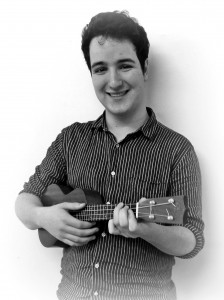
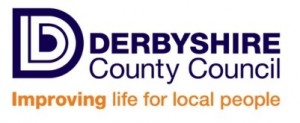
 We are delighted to let you know about a training day to be delivered by OPUS Music CIC, and to be held in Sheffield on 9th April 2014 hosted by Yorkshire Youth and Music. The day will explore the skills and competencies required of a musician in the healthcare setting, giving a broad overview of this extremely complex practice. It will be full of music-making and insights into this practice. Book now to avoid disappointment!
We are delighted to let you know about a training day to be delivered by OPUS Music CIC, and to be held in Sheffield on 9th April 2014 hosted by Yorkshire Youth and Music. The day will explore the skills and competencies required of a musician in the healthcare setting, giving a broad overview of this extremely complex practice. It will be full of music-making and insights into this practice. Book now to avoid disappointment!